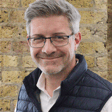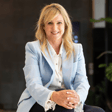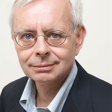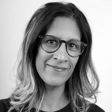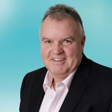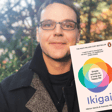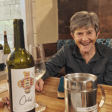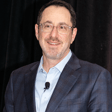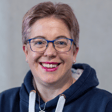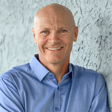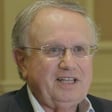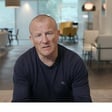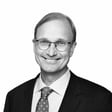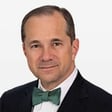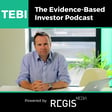Become a Creator today!Start creating today - Share your story with the world!
Start for free
00:00:00
00:00:01

Ep 23: Matt Hall & PJ McDaniel on Hillfolio, the new kid on the block in robo-advice in the US
Matt’s Hall firm, Hill Investment Group, based in St Louis, recently launched an automated investment solution service called Hillfolio. We sat down to talk to him and one of Hillfolio's directors, PJ McDaniel.
Transcript
Introduction to TEBI Podcast
00:00:04
Speaker
Hello and welcome to the TEBI podcast from The Evidence-Based Investor. I'm Robin Powell, and this podcast is produced as always by Regis Media, which provides and distributes financial education and marketing content for advice firms around the world.
Guests Introduction
00:00:20
Speaker
We have two guests on this episode. They are Matt Hall and PJ McDaniel. Now, Matt,
00:00:28
Speaker
is co-founder and president of Hill Investment Group in St. Louis and is author of Odds On, The Making of an Evidence-Based Investor.
St. Louis & Evidence-Based Investing
00:00:40
Speaker
PJ McDaniel is director of Hillfolio, a robo-advisor recently launched by Hill Investment Group, and we're proud to have Hillfolio as a strategic partner for Tebi in the United States. Matt and PJ, welcome to the podcast.
00:00:57
Speaker
Thank you, Robin. We're proud to be affiliated with you. We love the content that you put out and applaud the brave questions you ask and the way you sort of push the industry forward. So thanks for what you do.
00:01:11
Speaker
Well, Matt, that's very kind of you. You've been very inspirational to us as well. You're both speaking today from St. Louis, Missouri. And St. Louis has always struck me as possibly being the epicenter of
00:01:27
Speaker
evidence-based investing in the United States, if not in the world. You've got, as well as your good selves, the BAM Alliance just down the road from you. There's PlanCorp. So there seem to be a lot of evidence-based firms in a small space.
00:01:44
Speaker
Yes, St. Louis, I think, is the epicenter of the evidence-based or passive, as we used to say, world.
Investment Philosophy at Hill Investment Group
00:01:54
Speaker
Rex Sinkfield is from St. Louis, co-founder of Dimensional Fund Advisors. Dan Wheeler, who started the advisor division of Dimensional Fund Advisors,
00:02:03
Speaker
from this area, Buckingham, PlanCorp, Hill Investment Group. Larry Suedro, who you had on your show and has written 15 or 16 or 20 books now, I can't keep track, is here in St. Louis. So there's an insane amount of content, energy, and leadership that is either born in St. Louis or seems to come back here. So yeah, we're really proud of
00:02:31
Speaker
of all of the energy that's here in this part of the world.
Writing 'Odds On': Matt Hall's Experience
00:02:35
Speaker
Now, I'm guessing, Matt, that quite a few listeners to this podcast will already have read your book, Odds On, The Making of an Evidence-Based Investor. Clearly, those who haven't read it should rush out and get it. But can you just give us a sneak preview of what's in there? Yeah, Robin, this actually gets at the core of what I spend a lot of my time thinking about is
00:03:00
Speaker
If our investment approach makes sense and puts the odds of long term investing success on the side of the investor, how can we translate the academic research to a real human, a real person in a way that he or she will digest?
00:03:20
Speaker
I had a lot of experience giving away books that were highly technical. And as an advisor, I love them. As a professional, as a practitioner, I really got a lot out of these books. But when I would give them to friends or neighbors or family members and say, listen, I'm really turned on by this, aren't you too?
00:03:41
Speaker
they would get hung up either by the language we use or by the insane level of detail in many of the books I would share. I think we lose sight of the fact that when you say some industry acronyms it can hijack a person's attention and take them away from the real message you're trying to communicate. So I wrote a book in large part not because we needed another
Hill Investment Group's Unique Approach
00:04:06
Speaker
book talking about the power of sort of evidence-based investing, but because we needed another book, or at least a book in my opinion, that buried the vegetables, that took the essential lessons and put them inside of a personal narrative.
00:04:24
Speaker
And it was a challenging thing to do, first time author, but I've been around a lot of people who had written books and have been successful with books. And so I followed their lead in some ways and went a completely different path than others. And I'm super proud of what's happened. I got to tell you, Robin, it's been a transformational experience putting a book out in the universe.
00:04:44
Speaker
getting to meet and talk with people like you, advisors all over the Netherlands. The book has been converted to Dutch. I had someone fly from London to New York to St. Louis to have lunch with me to ask me questions about the book. I mean, I've met strangers and connected with people near and far in so many interesting ways. And I can't recommend, especially to advisors or practitioners who are out there thinking about writing a book themselves, who follow what you put out,
Introducing Hillfolio
00:05:10
Speaker
For me it's been an exceptional experience, but I think in part because I try to do something very different.
00:05:16
Speaker
Well, you certainly have done, and I think we should give a shout out to Robert van Baek, who presumably was the guy who translated your book into Dutch, I'm guessing. He does a lot of work, I know, with Carl Richards, for example, in the Netherlands and in Belgium, and has really helped to fight the evidence-based investing cause in that part of the world.
00:05:40
Speaker
Absolutely. He deserves a shout out and has opened a whole pathway for me with Dutch advisors, which is fun. Something I wouldn't have expected. So briefly, Matt, and I'll come to you in a moment, PJ. Matt, can you just briefly tell me about Hill Investment Group? Yeah. So Rick Hill and I started Hill Investment Group in June of 2005. We both worked together at Buckingham Asset Management. Buckingham and BAM collectively are now a $50 billion
00:06:11
Speaker
presence, but we had a great experience there and were there when it was very, very small, left when it was about $5 billion. So when we left, we thought, let's start our own firm and let's have a small group of clients and really give them a lot of attention. But the same sort of investment philosophy.
00:06:32
Speaker
I would say we called what we were building the island of idealism. What that meant to us was we kept what we loved about our prior experience and baked in a few new ideas of how we would treat clients and work with clients. We have an office in Houston, Texas and an office in St. Louis, Missouri. We have clients about a third are in St. Louis or around here, about a third are in Houston, a third or somewhere else in the country.
00:07:00
Speaker
Our core client group is a fluent investor who understands our approach, who likes to delegate and is fun to work with. Those are kind of the criteria we look for. We have 11 employees and we're passionate about this approach and the difference it can make in people's lives over the long term.
Hillfolio's Investment Philosophy
00:07:21
Speaker
And recently you've started a very exciting new venture called Hillfolio, which I suppose is a robo-advisor. There's some debate, isn't there, PJ, about whether robo-advisor is actually an appropriate name for the kind of service that you offer. What would you call it? Yeah, you know, we hear that term often these days and we don't want to be called
00:07:48
Speaker
a robo because everything we do on the front end is a human. Basically what we're doing is extending
00:07:58
Speaker
the philosophy and the team just to a wider audience by really embracing the technology that's out there. It's fascinating. It continues to get better. And so everything that we do on the front end is is human. And then as we start to onboard clients, it feels a little bit like a robo because it's a paperless process. But robo is a term that we don't want to be coupled into.
00:08:28
Speaker
I think also Robin because mainly we don't view ourselves as a technology company. Right. You know we're ultimately we're serving people. Sure. And we care we care deeply not just about the approach but helping the people be disciplined. And so that's that I don't know that there's any proof yet that a robo any of them no matter how smart the people are there that the technology can help the human feel
00:08:56
Speaker
like they can stick to even the smartest approach. I think that's where the human touch won't be replaced by technology. I think it needs to be an and not an either or. Exactly right.
00:09:11
Speaker
I've been an interested observer of this space in the US from across the pond. You've got, if I'm allowed to mention betterment, they are a pretty impressive operation. You've got probably a larger number of automated investment services in the US than we have over here. And it seems to me that a lot of them started out
00:09:38
Speaker
promoting low cost and broadly evidence-based investing but a number of them without mentioning names have actually gone away from that a little bit. I mean I'm thinking of one in particular which has been bought by a hedge fund manager. So PJ have you got any views on that?
00:10:01
Speaker
Yeah, obviously cost is a big topic, right, relative to kind of what you're buying and what you're paying for. We looked at that deeply and we'll say that, you know, where we are relative to our fees and costs,
00:10:18
Speaker
We've done a bunch of research leaning on a handful of firms and we are, in terms of price, below about 80% of our peer group. And I think where we really separate ourselves is having the investment philosophy as the benchmark and really the foundation of what we do for our clients.
Expanding Investment Options
00:10:41
Speaker
So I think you'll see fees continue to change over time. We're very comfortable with what
00:10:48
Speaker
we offer for what we charge. One thing I was going to say is philosophically we don't view any of the wealth fronts or betterments or personal capitals or even there's a firm if you go back in time that's based in Texas that's been somewhat successful that I think may be one of the original sort of robos or firms tilted that way called asset builder.
00:11:12
Speaker
And I don't view any of those firms as threatening or tough competition. They are improving for the investor who was previously ignored by most of our industry. I mean, most of our industry is going after $2 million and more clientele. And if you can democratize evidence-based investing and bring it to everyone, that is exciting. The world is big enough
00:11:41
Speaker
for all of us. And last I checked, none of those firms were the dominant market share leader. They are even the ones backed by venture capital money who likely aren't profitable yet. They're babies compared to the Merrill Lynch's and the UBS's and whatever of the world. The big banks and wirehouses still dominate this space.
00:12:08
Speaker
And we I think as a as an industry or as a group, we need to get over feeling threatened by people who offer something compelling and interesting to the consumer and view them as fans because they're really bringing something that for a very long time was not was not offered at all.
00:12:27
Speaker
So I view all of the sort of robo competition as hopefully complimentary to what we do and potentially a farm system for us. If those people have a great experience and then look for something a little bit more intimate, I think we could be a great extension or offering for those folks.
00:12:46
Speaker
And tell me PJ, are these traditional market cap weighted funds that these hill folio clients are invested in or is it in dimensional style factor funds or a combination of the two?
00:12:59
Speaker
Yeah it's a great question and the timing couldn't be any better. So Matt and the firm have been passionate in trying to expand the offerings that we have. So we started out with till folio just ETFs and we were tilting towards the factors that obviously we're passionate about.
00:13:19
Speaker
And about 10 days ago, we not only got funds approved on the platform, but funds that we're extremely passionate about and really tilt towards the factors and align with our investment philosophy. So this is something that we're thrilled about because the average investor can't directly to these funds. They need to, first of all, be educated on why these funds
00:13:46
Speaker
act the way they do and we're now in the kind of the first inning of bringing those funds to our existing clients and certainly all of the clients that we have here in the pipeline. So it's an exciting time for us and Hillfolia.
00:14:03
Speaker
I was actually talking to an advisor in the UK earlier today who has a very similar investment philosophy to your own and he was saying that he is increasingly getting people who not only want to invest in an evidence-based way but they also want to invest in a sustainable way and
00:14:26
Speaker
Clearly, you know, the nature of these automated services, you're appealing generally to a younger audience and without wanting to kind of compartmentalize people, younger investors often are sustainable investors. Is that something that you are thinking about offering at some stage?
00:14:45
Speaker
Yes, it is. Historically, the answer has been it's expensive to filter in the way that some prospective clients might want us to filter. So if the cost outweigh the potential benefit,
00:15:00
Speaker
That usually was a hurdle. We had a hard time getting over the answer though today is it's getting better. It's getting cheaper It's getting easier and it's getting more customizable meaning we can account for a greater number of preferences or filters that people would like to see placed on their portfolio, so I would say
Investor Behavior & Education
00:15:20
Speaker
Yes, you're right Robin. If we are taking a broader audience and that audience is maybe younger than the typical clientele, we want to account for those preferences. We can do it now and it is less expensive. So again, directionally, I think it's all headed in a super place. And I think you're spot on that that is sort of accounting for those preferences in a low cost tax efficient way is something we're really interested in.
00:15:49
Speaker
Now something else that you as a company, when I say as a company, I suppose Heal Investment Group as well, is very much focusing on behavior. Matt, investor behavior has always been for you almost just as important a part of this whole story as cost, if not even more so.
00:16:10
Speaker
Yeah, you know, my friend Carl Richards, he has a sketch and his idea originally came out of this thing called the behavior gap, you know, the gap between the return that the investor gets versus the return of the investment itself. And that gap is significant. And that gap is generally connected to doing the wrong thing at the wrong time. And so
00:16:35
Speaker
I have been really trying to figure out how to build a curriculum for our firm to get better going beyond the spreadsheet. And for years we have worked with a psychotherapist who has a portion of her practice who deals just in money.
00:16:51
Speaker
Because the idea for me is, if I can alter someone's behavior in a way that makes them feel more confident, and that confidence leads to discipline, or even being comfortable acting as a contrarian, if you think about the act of rebalancing,
00:17:08
Speaker
It's so counterintuitive. You're going to buy what's doing poorly and you're going to sell what's done well. That goes against everything in us. And so if we can figure out a way to actually help people lean into that process, that really excites me. So our firm, I think, is somewhat unique in that we've built our own curriculum, we have our own resource, and we're very serious about it. Because I think, frankly, you can do a lot of harm to yourself, even if you have great
00:17:35
Speaker
underlying recipes. If you have an evidence-based program but your behavior is awful, I'm not sure how much better that is than if you had an active set of funds that were low cost and tax efficient and you were very disciplined. Ultimately, I think it's twofold. We want to have the absolute right approach that puts the odds of success on the investor side, but we also want to help
00:17:58
Speaker
our clients feel understood and well held and connected to us in a way that allows them to be disciplined during trying times.
00:18:07
Speaker
And going back to you, PJ, I know from talking to Dan Egan at Betterment, who heads up their kind of behavioral side of things, that this is something that they're very much working on to help encourage Betterment investors to stay the course, you know, to use the late Jack Bogle's famous phrase. Is this something that you at Hillfolio are doing as well?
00:18:34
Speaker
You know, we are to Matt's point, right? So when we have clients come on board, our newsletter is a great way for us to connect with them to continue to educate our clients. And so we have an open rate of over 40% of our newsletter. And so we're passionate about that avenue and using that as a tool
00:18:58
Speaker
for clients to continue to understand why we think the way we think. We also are a big fan of obviously podcasts. So things like this are a great way for us to continue
00:19:13
Speaker
that education for not just our clients, but also the folks that are interested in learning more about what we do. And so there are a handful of great resources that Matt and the firm have put together and we continue to build on those resources for both our prospects as well as our clients.
00:19:34
Speaker
And Matt, for you, how important is that whole investor education side of things? I mean, how important a function is this of a modern advice firm?
00:19:45
Speaker
I think it's critical. I think ultimately if we work with people who understand our approach and are fun to work with and like to delegate, we can really do valuable work together. But if someone doesn't have the interest nor the capacity to understand the approach, it's likely not the best fit for our firm. There are lots of people out in the investment community who don't care if their clients understand what they do.
00:20:12
Speaker
And I actually wrote about this in odds on about my first experience in the personal financial services industry. Someone told me that their best clients were two things, rich and dumb. We're the opposite.
00:20:26
Speaker
We care more about people being connected to the work we do, valuing the work we do, and appreciating that there is a science behind the approach. So it's core to who we are. It's core to what we do. And we beat that drum, I think, as hard as any I know, just because we've seen
00:20:50
Speaker
The real benefit, and Robin, this goes back to in my days working with Larry Suedro when I would be with him during talks he would give, he would tell a story at the very end called The Big Rock Story. We probably don't have time for it now, but someone, go read.
00:21:06
Speaker
I mean, because it just despite a highly technical presentation where we broke a lot of PowerPoint slide rules too much information and lots of heavy stuff at the end when Larry would tell the big rock story people's ears would really
00:21:24
Speaker
come forward. They would sit up straight. And what he was doing was marrying or connecting the investment approach with where it affects your life. And the real benefit of this approach, I think, is not just higher long-term expected returns, but you get time and energy back. What will you do with the time and energy you get that you used to spend trying to analyze the market and know something that you couldn't really know
00:21:49
Speaker
And even if you did know something the market didn't know, could you act on it in a reliable, repeatable, robust way that gave you access to a premium you could count on? I think not. So the thing that excites me the most is what you get back in time. Because I think that is the sort of unspoken benefit that if we highlighted more for people, I think they would run faster to this approach than even we see today.
00:22:18
Speaker
If I could dovetail off of that comment, just going back to education, obviously the book is a critical part of just the education. In fact, we got a call from a gentleman that picked up Matt's book at a public library in Dallas. And this is someone that read the book. He does not hit the minimum for Hill Investment Group, but he does hit the minimum for Hill Folio.
Automated Services & Global Trends
00:22:41
Speaker
And he completely understands our philosophy. He embraces it.
00:22:46
Speaker
he's
00:23:07
Speaker
the book at a public library, spent the time to educate himself. And now he's looking to really align his investments with our investment philosophy. So it really goes back to the book and the investment philosophy as the foundation of what we're doing.
00:23:26
Speaker
And as Matt was saying, most of the advice profession is aimed at that top 2%. Much of it is actually aimed at even 1%, even smaller, the ultra high net worth individuals. But having your kind of automated service enables you to offer evidence-based investing to a much broader range of people who may, as you say, eventually become your own clients of Hill Investment Group, Matt.
00:23:55
Speaker
Yeah, that's right. I think we wanted to do it one in part because yes, it is could be a good farm system for other parts of our business. But also, I mean, this may sound a little sappy, but it's what's in our heart. I mean, we just feel like it is the right thing to do.
00:24:13
Speaker
And we were waiting for the technology to allow us to sort of do the right thing. I think that's one of my favorite parts of this niche, this part of the industry is there are a lot of sort of altruistic people who want to do well for themselves while still doing good in the world. And that is really appealing to me. And so I would say also to you, Robin, that's one of the things I love about you is I remember one of the first pieces of content I saw from you
00:24:42
Speaker
Really made me feel like the wind is at our back, even over here in the US because if someone over in the UK is getting energy and creating great content and helping sort of spread this word.
00:24:59
Speaker
speaks to what's coming in the future. I think globally there is a migration away from gurus and gunslingers to evidence and really putting the odds of successful investing on people's side, be they just starting out or the mega super affluent.
Tribute to Jack Bogle
00:25:17
Speaker
And I really appreciate what you do. You put out high quality thinking and help many of us tell the story of evidence-based investing. So thanks for what you do and keep doing it.
00:25:29
Speaker
Matt, that's very kind and appreciated. On the subject of altruistic people who try to do the right thing, we oughtn't leave this podcast without mentioning Jack Bogle. PJ, how would you summarise Jack's legacy?
00:25:51
Speaker
Well, I would say clearly a trailblazer and a pioneer in the industry. And I don't think I can say anything more that's already been set out in the marketplace. What has been fun for me to read is other people's comments about his life. And you've got folks that are active and passive and wire-housed and just a wide range of other pioneers that had
00:26:16
Speaker
an incredible amount of respect for what he did over his career. So that's been fun for me to kind of see how other peers view Jack in his lifestyle. Absolutely. Matt, there have been so many lovely tributes to Jack, as PJ says. It's quite humbling, isn't it? That one individual can have touched so many lives like Jack did. Yeah, and I think for me,
00:26:43
Speaker
takeaway is actually similar to Michael Lewis, who I like most of what Michael Lewis has written. I think he's one of the better, you know, American writers. And he said he writes stories about people who make brave choices. And as I think about Jack Bogle, one of the things I love most about him is not
00:27:06
Speaker
where he sat at the end of his life with a wildly popular investment philosophy that has trillions of dollars at the company he created. But what I admire most about him is where he started and the brave choices he had to make in the beginning. I think it's easy for people to forget how hard and how counterintuitive and how contrarian
00:27:33
Speaker
And all of what Vanguard stood for in the beginning, how odd it was. Exactly, exactly. And I really admired the stubborn, brave choices he made. Obviously not just in the way Vanguard is constructed, but also in the way they fought that fight even when it wasn't popular.
00:27:58
Speaker
And for that, I think I am inspired in my own work because I think we are stubborn. I think we occasionally, though not quite as brave, make some courageous choices. I think we fight a good fight. And I think we are still going against that sort of very sales, self-centered culture that exists across most of the big wirehouses and banks.
00:28:24
Speaker
And so that motivates me. And I think I am motivated by the selflessness and the stubbornness and the brave choices Jack Bogle made. And I just think he did so much for the investor who craved a different experience and who wanted something based on academic evidence.
Closing Remarks
00:28:46
Speaker
Although in the beginning, I don't know how many people understood the genius of what he was creating. He certainly appreciated today.
00:28:54
Speaker
Absolutely. It's been inspirational talking to you guys. Always good to speak to people of the same mind and thank you so much for your time. And best of luck with both Hill Investment Group and PJ with Hillfolio. Absolutely. Thank you very much, Robin. Thanks, Robin.
00:29:15
Speaker
You've been listening to the Tebby podcast from The Evidence-Based Investor. I've been talking to Matt Hall from Hill Investment Group in St. Louis, and his colleague, PJ McDaniel, who heads up Hill Folio.
00:29:30
Speaker
The podcast was produced by Regis Media which provides and distributes both financial education and marketing content for advice firms around the world. If you want to find out more visit the website regismedia.com. You'll also find plenty of explanatory videos on Regis Media's YouTube channel.
00:29:51
Speaker
Please subscribe to this podcast if you haven't already. We're on both SoundCloud and on iTunes. Please do share it on social media and why not leave a review as well. But for now, from our guests, Matt Orr and PJ McDaniel, our producer James Creswell and me, Robin Powell, goodbye.
